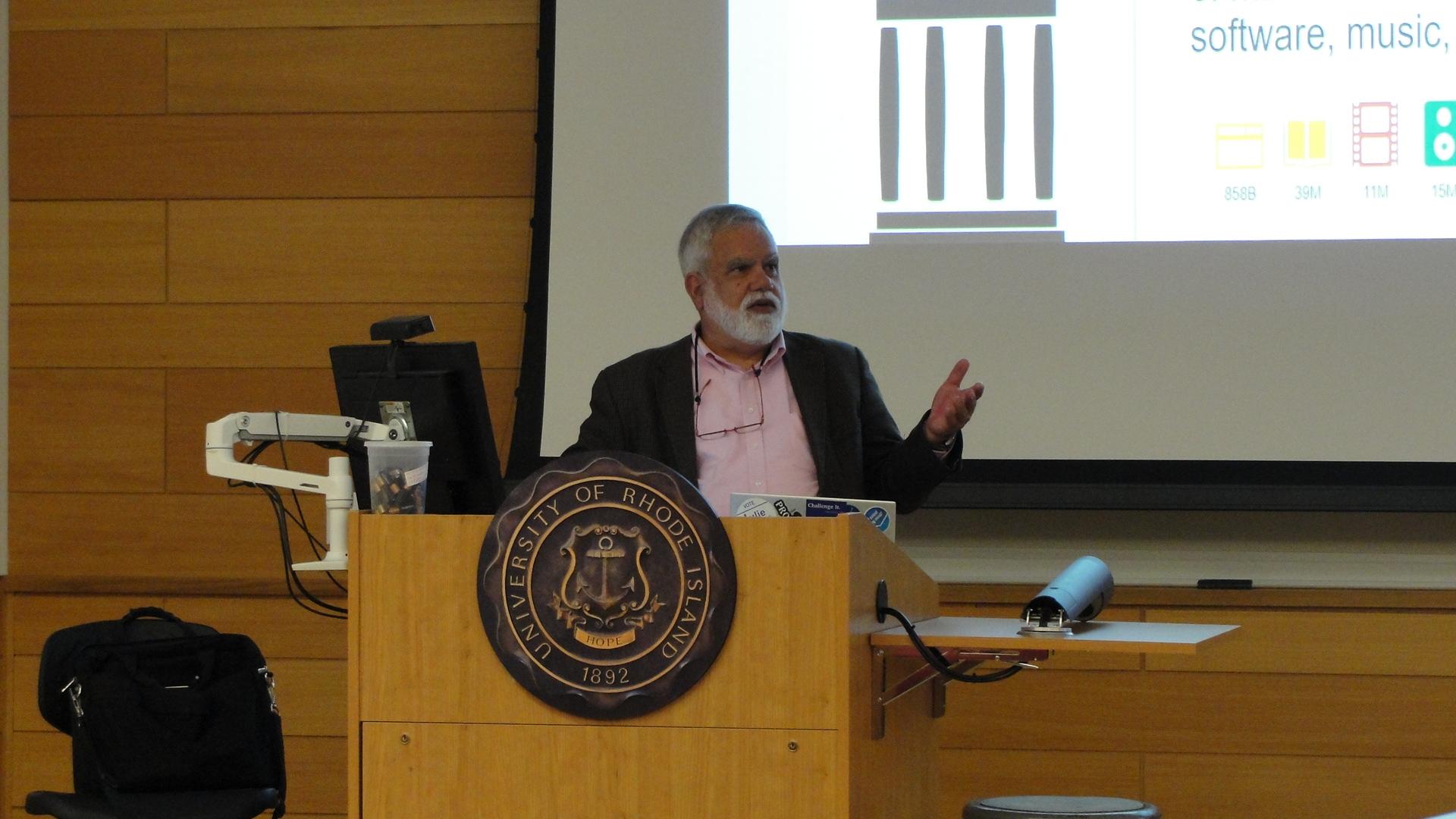This past Thursday, Micheal A. DiLauro, a criminal defense lawyer for over 41 years, spoke in this series on the impacts of developing artificial intelligence on the practice of criminal law.
This year marks the University of Rhode Island’s 25th annual forensic science seminar series.
DiLauro is a 1977 graduate of Providence College who later went on to law school. He devoted his career that followed to representing the less privileged and training other lawyers.
In his lecture, DiLauro described how AI’s job is to be able to access every piece of information ever put on the internet. This means that people are not aware of where the information being gathered is coming from, nor how accurate it may be. DiLauro also explained how, since AI is such a recent development, responses to its use are not yet developed.
“The legal precedents that we as lawyers would look to are still in the process of being developed,” DiLauro said.
DiLauro explained how this means that training for lawyers around the use of AI in their work is also extremely scarce. He used examples of commercials for AI applications that can be used to write legal work to show how cleverly marketed AI tools are used to appeal to lawyers. DiLauro went on to show how this issue presented itself in a case of Roberto Mata vs Avianca Airline.
DiLauro explained how a member of Avianca discovered that ChatGPT was used by one of Mata’s representatives to write their cases.
“When the documents were written, they cited cases of authorities that either didn’t exist, or if they didn’t exist, didn’t stand for the proposition that the lawyers were citing for,” DiLauro said.
Mata’s representative was accused of using ChatGPT, a popular AI website that can write various forms of literature when provided with prompts. When questioned, the representative said that he used and cited the material created by ChatGPT “operating under the false assumption and disbelief that this website could produce completely fabricated cases.” DiLauro explained how in response to this case, many judges banned the use of ChatGPT in their courtroom and caused professors to worry that students would use it in their legal studies.
Upon hearing of this case, DiLauro decided to test out the use of AI to see how it could perform in legal work. He wrote a legislative draft to propose reforming a Rhode Island law and then provided information to ChatGPT to do the same. DiLauro said that the AI’s version was better, “shorter” and more “succinct” than his own work.
DiLauro demonstrated an example of AI coming up with questions for a case to ask in court. The questions, however, did not contain a leading question, and were not well developed enough to be used raw in court.
DiLauro explained how the use of AI can be problematic by showing examples of “deep fakes,” video software used to replicate and copy faces, in politics and the media. This led in to his description of “the artificially intelligent trolley problem” to describe the criminality of one’s actions.
He described how there are two bases to criminal liability, which are Actus Reus, a criminal act and Mens Rea, an individual’s intent in their act. He used an example of a car accident where an intoxicated driver was driving using their Tesla’s autopilot to steer. This caused an investigation into the safety of Tesla’s auto drive feature, and called into question the potential fault of the company in the accident.
DiLauro also said how AI can and has proven to be useful in the law and in police enforcement, through the use of cyberagent technology, DNA analysis, the detection of gunshots, and more.
DiLauro concluded with a description of various ethical considerations under the Rules of Professional Conduct (RPC) that should be recognized in the practice of law and in considerations of the use of artificial intelligence. These considerations included one’s responsibility to “maintain competence,” “act with reasonable diligence” and keep confidentiality.
URI’s forensic science seminar series is offered for class credit and is also open to the public. The series is held each semester and recordings can be found on URI’s department of chemistry website .

